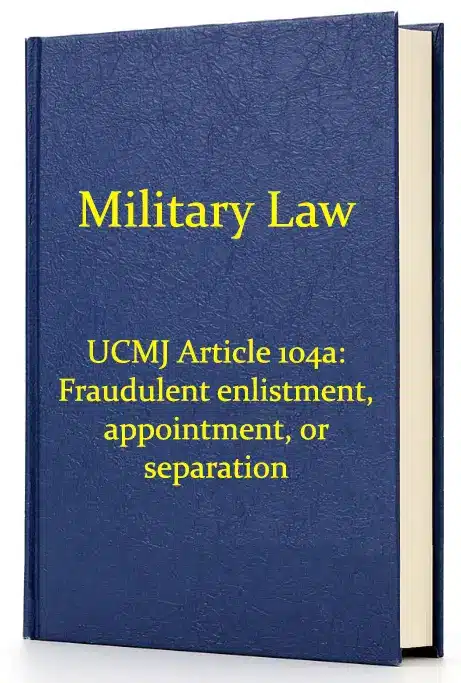The MCM states under Article 104a (Public Record Offenses), any service member may be prosecuted if they willfully and unlawfully:
-
alter, conceal, remove, mutilate, obliterate, or destroy a public record; or
-
take a public record intending to alter, conceal, remove, mutilate, obliterate, or destroy the public record.
The prosecution must demonstrate:
-
the accused altered, concealed, removed, mutilated, obliterated, destroyed, or took with the intent to alter, obscure, remove, disable, erase, or destroy a specific public record; and
-
the act of the accused was willful and unlawful.
Understanding Article 104a (Public Records Offenses) of the UCMJ
The public records included in a public records offense are any records, reports, statements, or data compilations, in any form, of public offices or agencies, outlining or detailing the activities of the office or agency or matters observed under a duty imposed by law as to which matters there was a duty to report. These records also include classified matters.
Maximum Possible Punishment for Violations of Article 104a
Service members convicted of an Article 104 violation face the maximum possible punishment: a dishonorable discharge, forfeiture of all pay and allowances, and three years’ confinement.
How do you defend against Article 104a Public Records Offense charges?
When facing the combined resources of the military and the current cultural climate, you need to be prepared to defend your career and your freedom. Crisp and Associates, LLC has a team of experienced trial attorneys who have won these cases. This team includes the firm’s founder, Jonathan Crisp, a highly respected former Army JAG with over 23 years of experience in military law and a sought-after speaker and lecturer on martial law. Donald Gordon has litigated cases before the Discharge Review Board, the Board for Correction of Military Records, and the Board for Correction of Naval Records regarding various matters and a diverse background of clients.
If you or someone you know is facing Article 104 charges for Public Records Offenses, you must immediately speak with a Military defense attorney.




